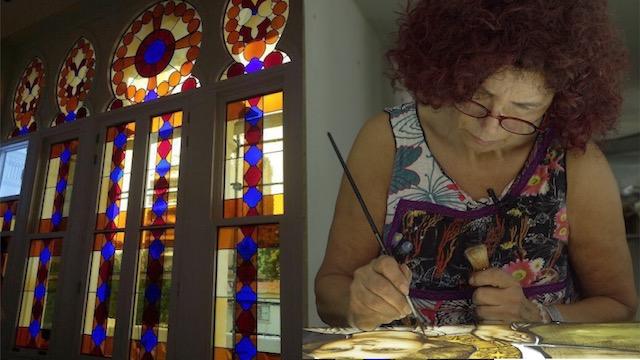Beirut blast: The rowers left with nothing cling to Olympics dream
- Published
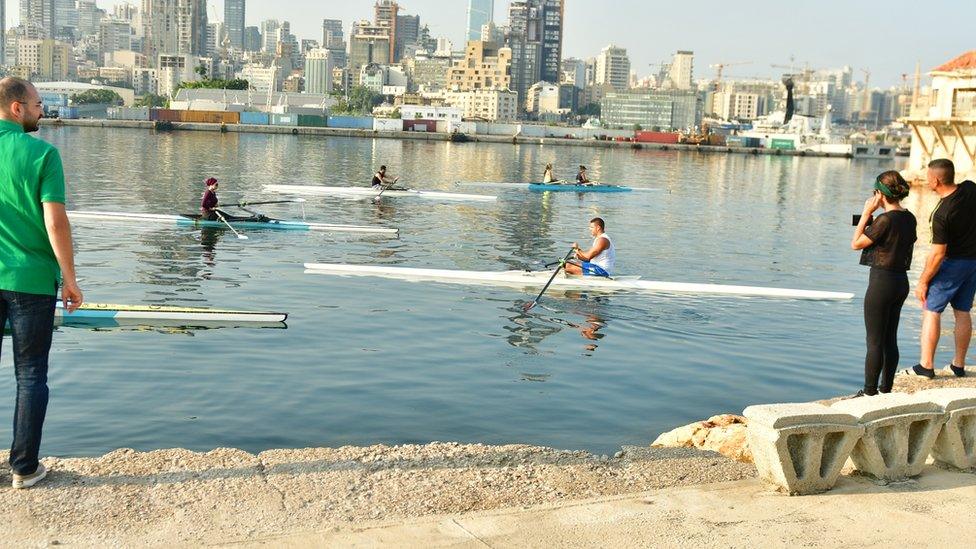
Rowers from the Lebanese Rowing Federation train in front of Beirut port
Rodrigue Ibrahim could have easily lost his life on 4 August.
The soldier and rower was planning to head down to his beloved rowing club on the waters opposite the Port of Beirut at half past five in the afternoon, but a Bible study session on Zoom with a friend in London overran.
"Because of this meeting, I didn't go to the rowing club. I should have been there at this time," Rodrigue, 28, said.
About half an hour later there was a gigantic explosion at the port that sent a mushroom cloud into the air and a supersonic blastwave radiating through the city. Almost 200 people died and thousands were injured.
Just 200m (650ft) from the port, the Lebanese Rowing Federation's training centre was completely destroyed.
The emotional impact of the city's deadly port explosion has been felt as far away as Ethiopia and Syria
"With God, nothing is impossible, which means there will always be a chance to survive," Rodrigue says.
"But I can't hide that this question has come to my mind before - what would have happened to me?"
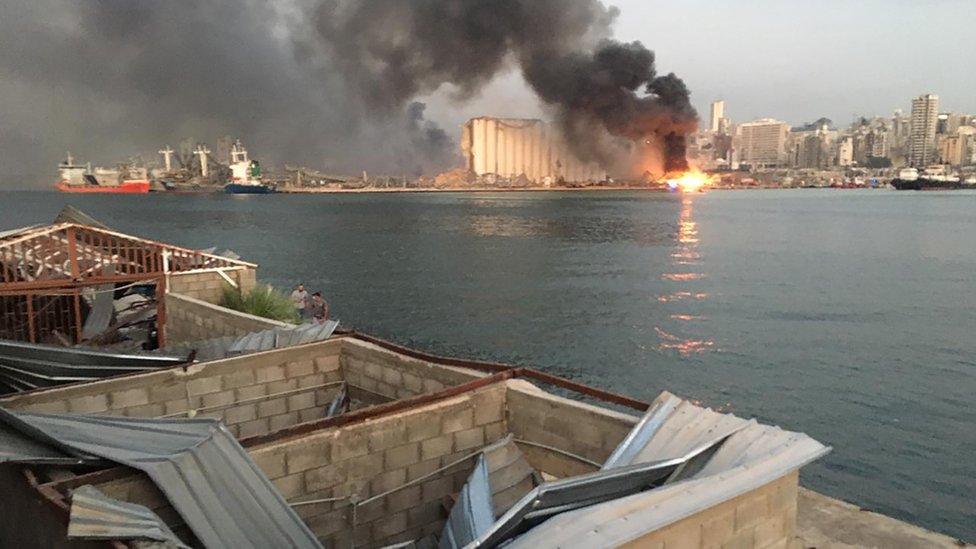
The aftermath of the explosion, seen from the training centre
Usually the club would have been full of rowers at this time, but due to coronavirus restrictions introduced only a few days before, the building was empty. Rodrigue had been one of only a few people still able to visit the centre due to being a coach.
Despite his relief that nobody was in the building, Rodrigue was devastated upon seeing the premises wrecked.
"I have done it all for free. I trained people for free. I fix things for free. It's all for free because I love it and it's my life," he says.
"When the blast happened that's why I was crying. It was so hard."
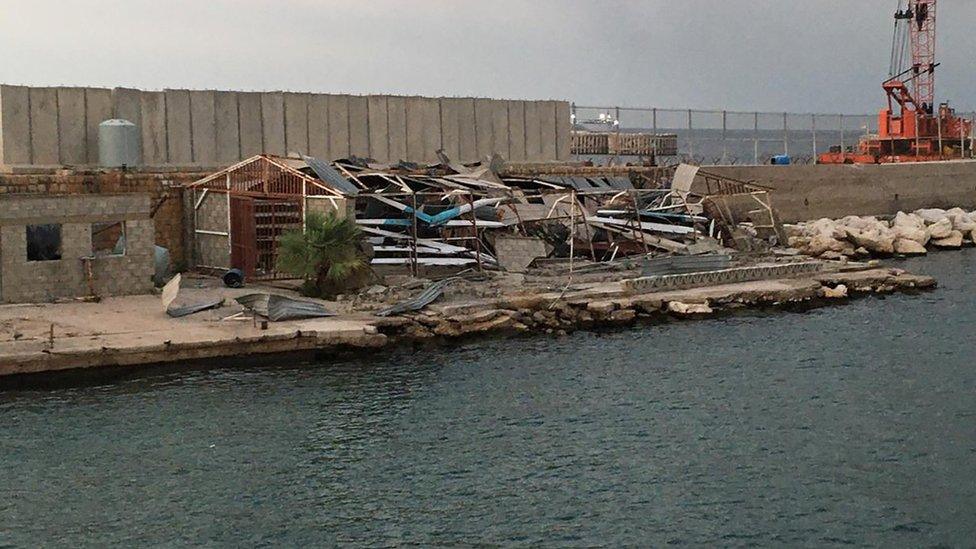
The tangled wreckage of the training centre after the blast
The Lebanese Rowing Federation was founded in 1968. Although underfunded and run almost solely by volunteers, it is home to around 20 active rowers, from children to veterans of Beirut's waters.
Like the city itself, the federation is home to rowers from all backgrounds.
Rodrigue is a Christian and his double scull partner, Akram, is Shia Muslim. Many of the club's Sunni, Shia and Christian rowers maintain close bonds outside of the club, too, attending each other's weddings, for example.
"We are like a family," Rodrigue says.
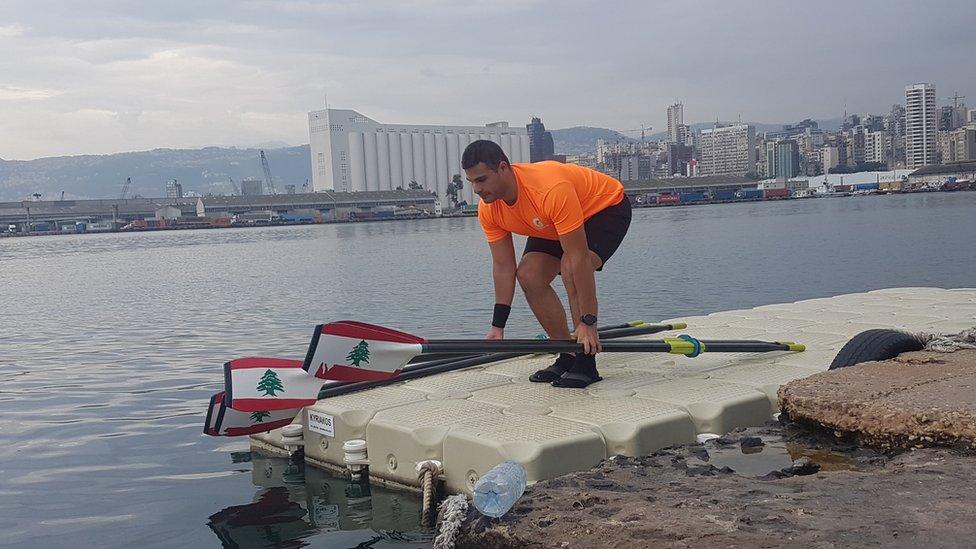
Rodrigue spends most days rowing by the port
General Hassan Rustom, who has been president of the federation since 1998, recalls the moment the explosion hit.
"I was sitting at home with my family and suddenly it was like my house was hit by an earthquake. I can't even describe the sound and the feeling we were left with at this time," he says.
"We rushed to check the news and I discovered about the blast in Beirut port. I left directly to our training centre.
"I will never forget what I saw that day on the way to the training centre, it was a nightmare. Thank God nobody was training at this time because of the Covid-19 restrictions. The rowing training centre was totally destroyed."
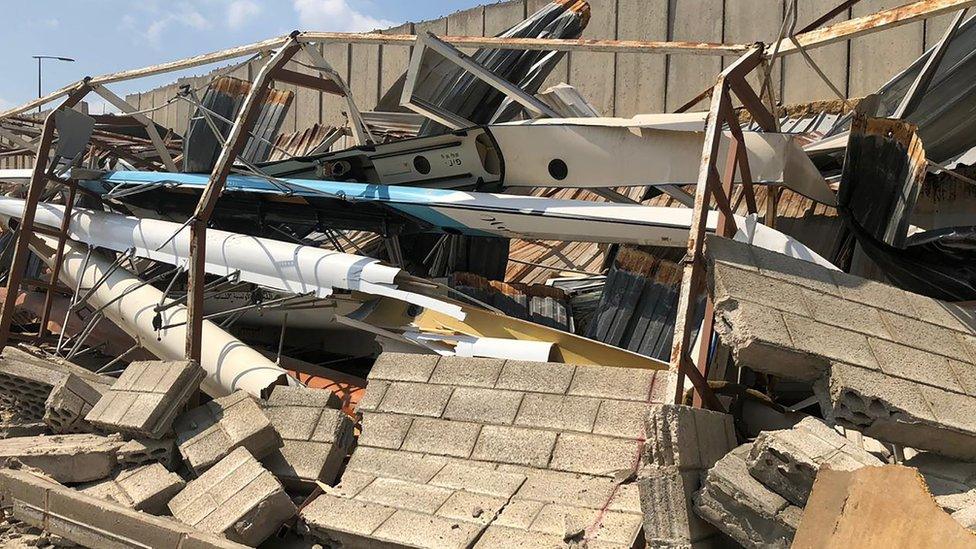
Nobody was in the rowing centre when the blast happened due to pandemic restrictions
The rowing club has been a constant in Farah Jaroudi's life from the age of 10. She bagged four gold medals in the Lebanese National Championships between 2003 and 2013, but now just rows when she has spare time from her job as an interior architect.
Many of Farah's happiest days have been spent rowing up and down the 2km stretch in front of the port. She likens the to and fro motion to meditation.
"I feel like I am at one with the water. It's very soothing," she says.
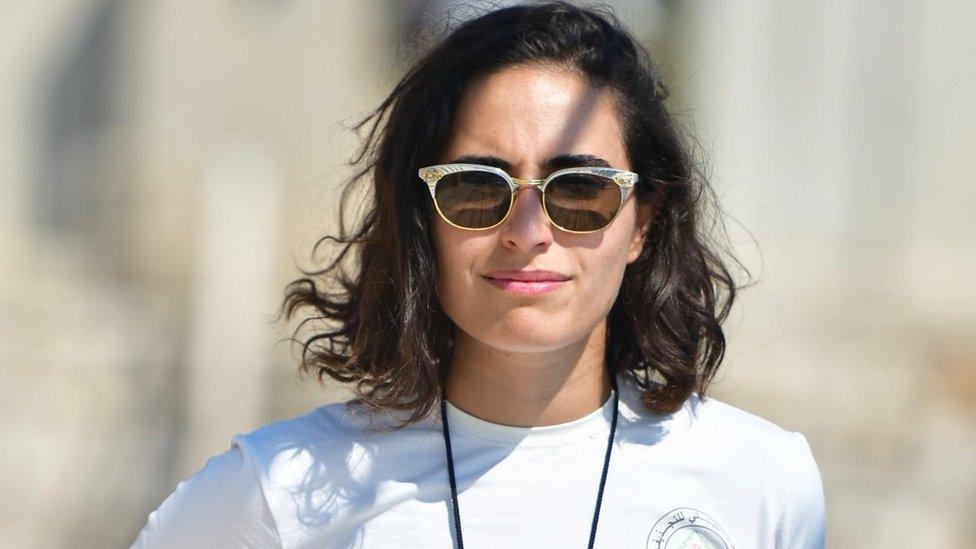
Farah Jaroudi has been rowing in Beirut since childhood
In breaks from training, she and her rowing partner Hiba would lie back on the boat and catch up. Sometimes they'd play music and sing along to legendary Lebanese singer Fayrouz as the sun would set on the city.
And due to being on open waters, rowers in Beirut encounter more wildlife than most.
"Sometimes we have dolphins come in if they have lost their track, they come into the port. We have a very old sea turtle - sometimes it rises to the surface and we are so excited," Farah laughs.
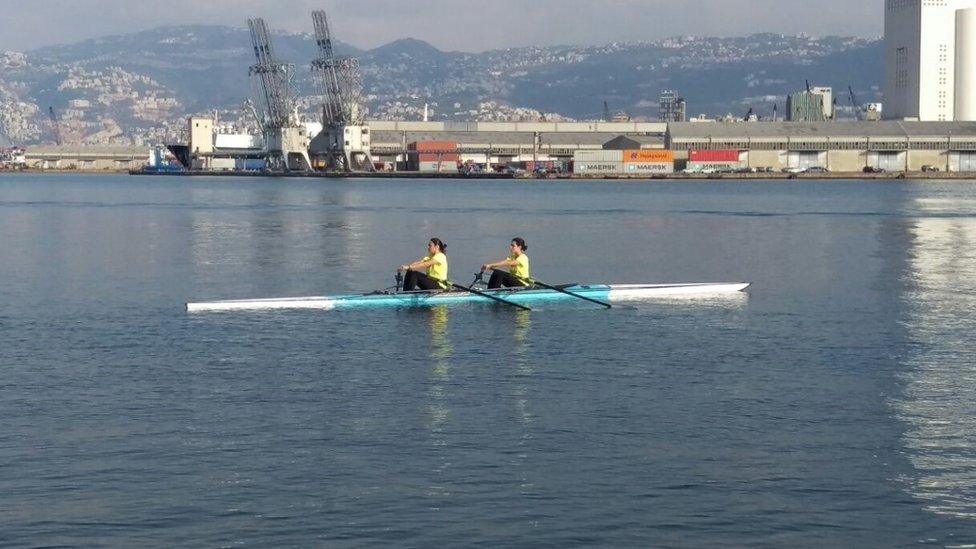
Farah and her rowing partner, Hiba Alameh, in front of the port before the blast happened
"Once we reach the 2km at the end, you are close to the open waters. There are a lot of seagulls there - it's a majestic view."
At times the waters can be dangerous, and rowers must keep on constant lookout for ships entering the port.
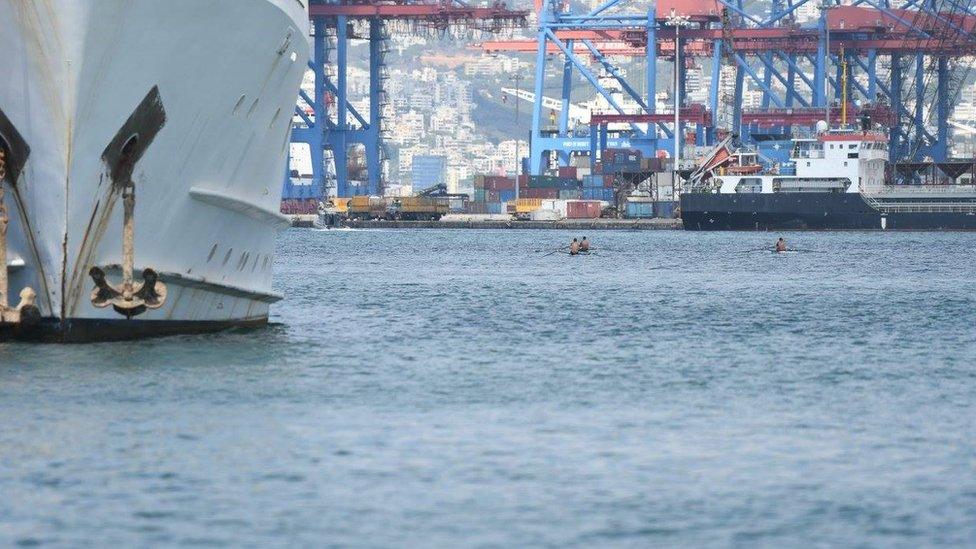
The rowers share the port with huge cargo ships
On 4 August, Farah was on holiday in Istanbul when she started being bombarded with WhatsApp messages asking if she was okay. Then she saw the footage of the blast.
"The thing we kept repeating was: 'It looks like Hiroshima, it looks like Hiroshima.' I kept re-watching the videos. I was shaking, it looked like a movie," she says.
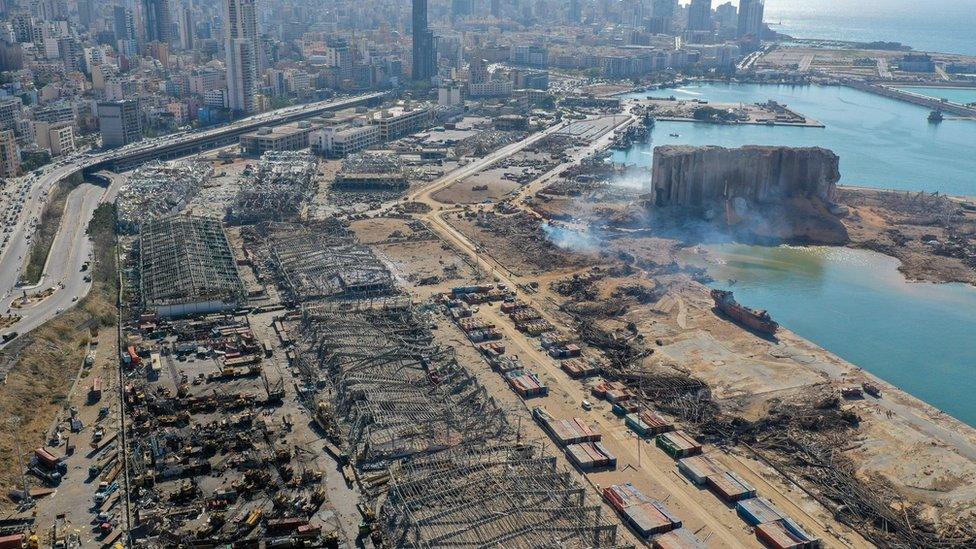
The blast site, seen from the opposite side to the rowing club
"Before Beirut was colourful, now it's black and white. It looks the same way as it did during the civil war," she says.
Despite the club lying in ruins, there are hopes to rebuild it.
Rowers from around the world have voiced their desire to help with boats and other equipment, while others have offered donations. There are also plans to set up a crowdfunding page.
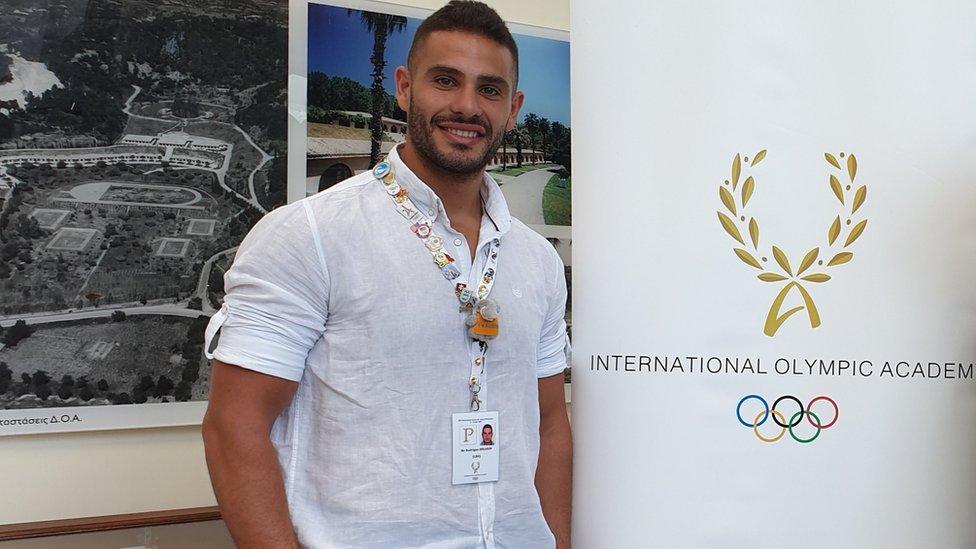
Rodrigue hopes to one day row in the Olympics
Rodrigue - who won a silver medal at the Arab Indoor Rowing Championships in 2018 - dreams of making the 2024 Olympics in Paris. He admits this was a tough enough task before the blast due to the lack of funding and facilities in Lebanon.
"I visualise my coach that I don't have. I imagine he is in front of me. When my blade goes down I visualise the coach screaming at me: 'Be careful!'" he says.
Rodrigue is determined to get the club up and running again as soon as possible - even if hope is in short supply in Beirut. Lebanon was already besieged by an economic crisis and the coronavirus pandemic before the blast.
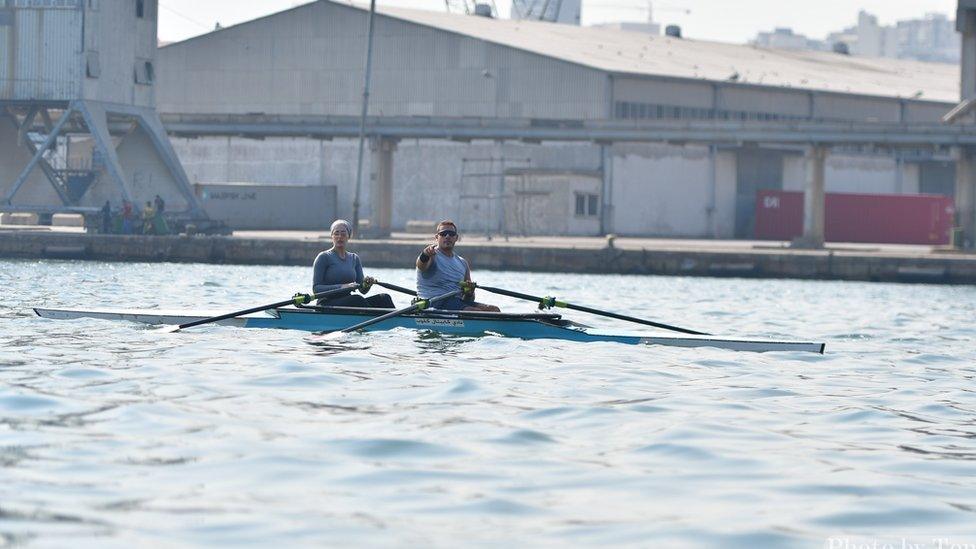
Rodrigue and a rowing partner in front of the warehouse where the explosion happened
"After all these things happened I can't hope anymore. When I hope and something happens and it's gone, it's hard to get over it, it's really hard," he says. "I'm living day by day, but I am putting my effort into my future and I don't want to let my dreams go."
But despite his club lying in ruins along with much of his city, Rodrigue is still counting his blessings.
"I cannot hope for anything else," he says. "Seeing myself in the mirror and knowing I'm alive is the loveliest thing I have right now."
Fixing the scars of Beirut's explosion
- Published4 September 2020
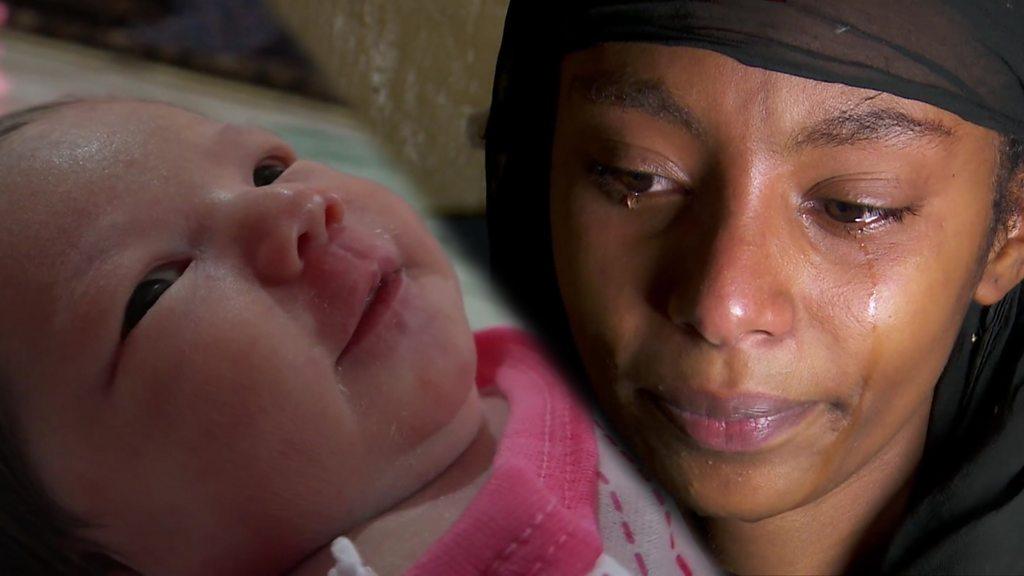
- Published30 August 2020
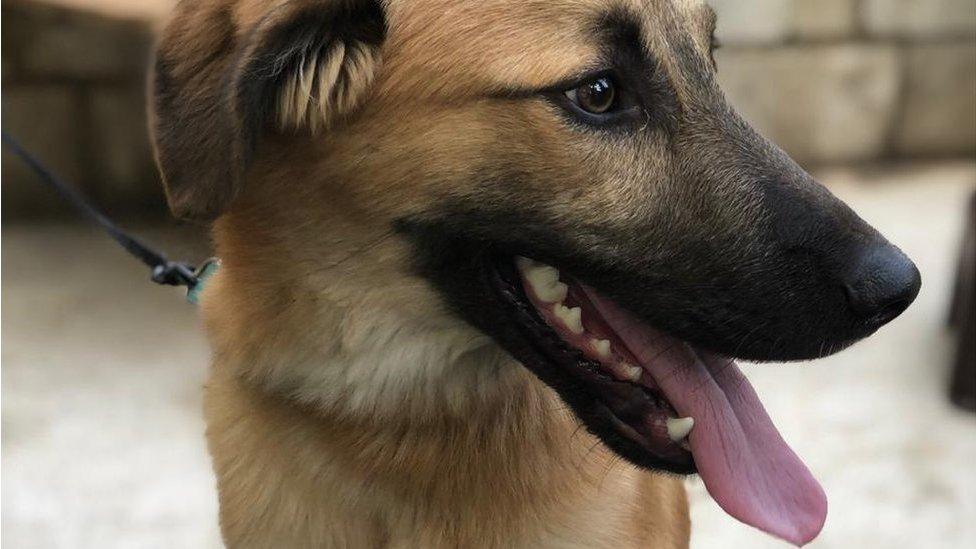
- Published9 August 2020
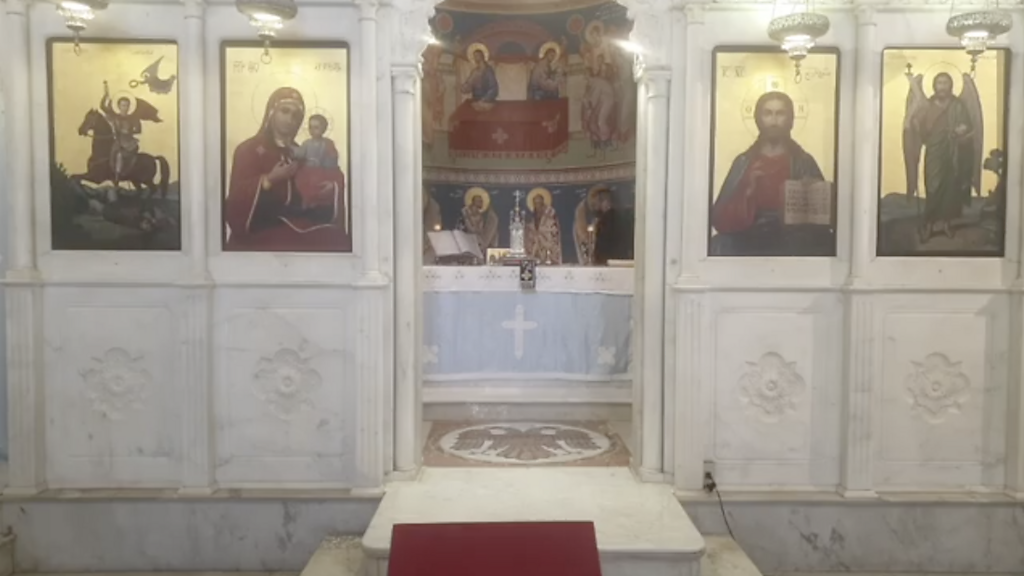
- Published9 August 2020
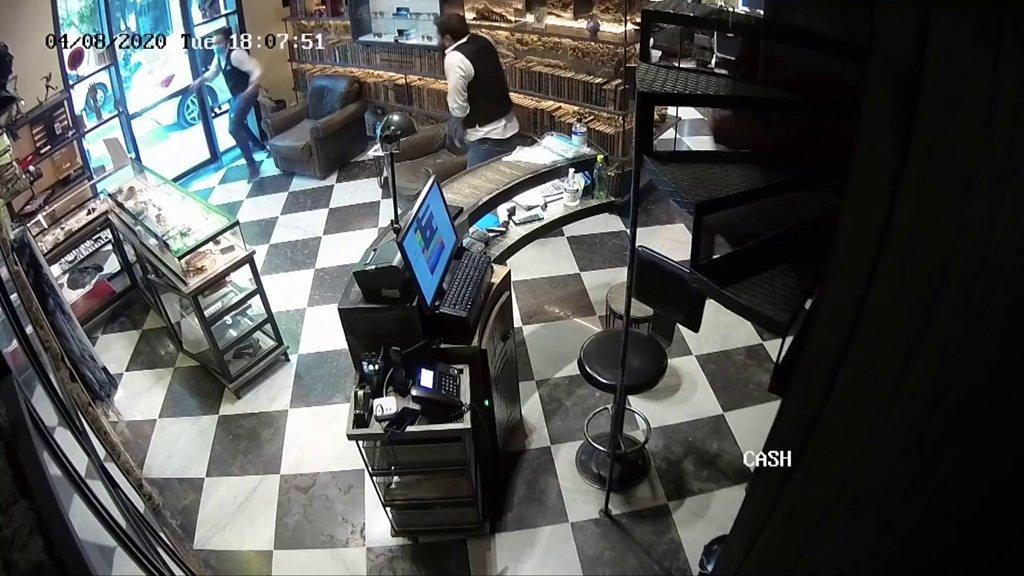
- Published13 August 2020
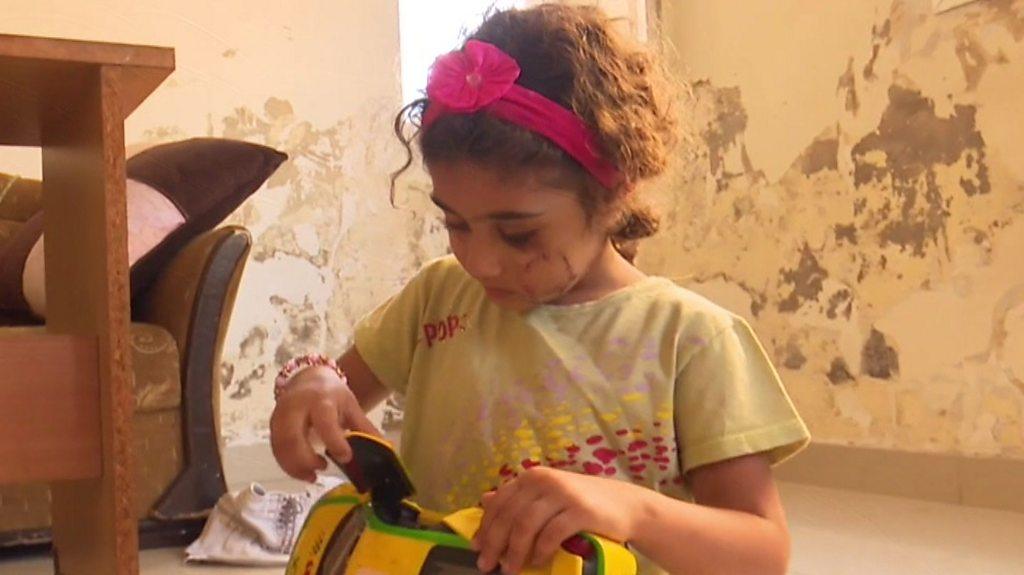
- Published19 August 2020
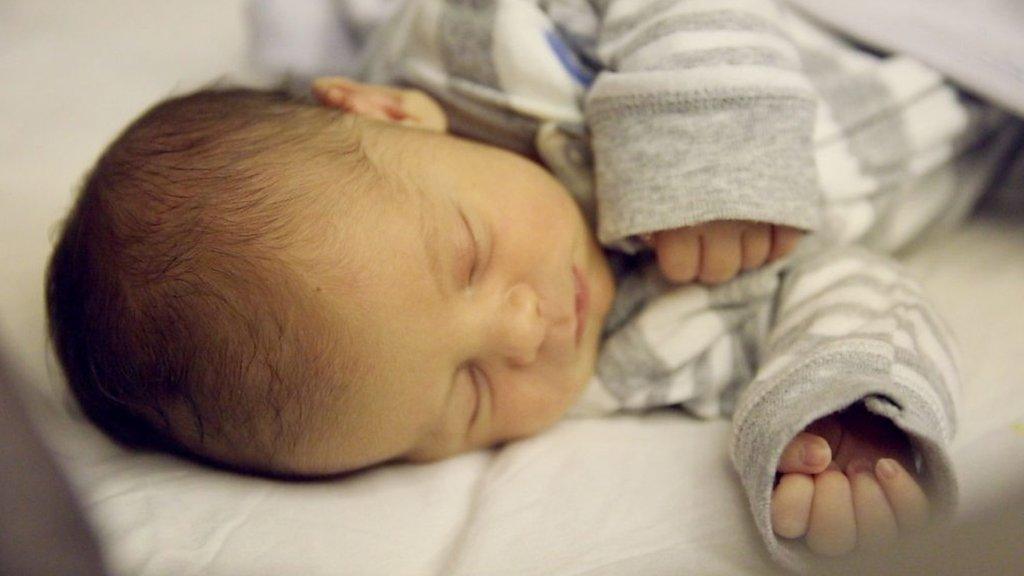
- Published23 August 2020
